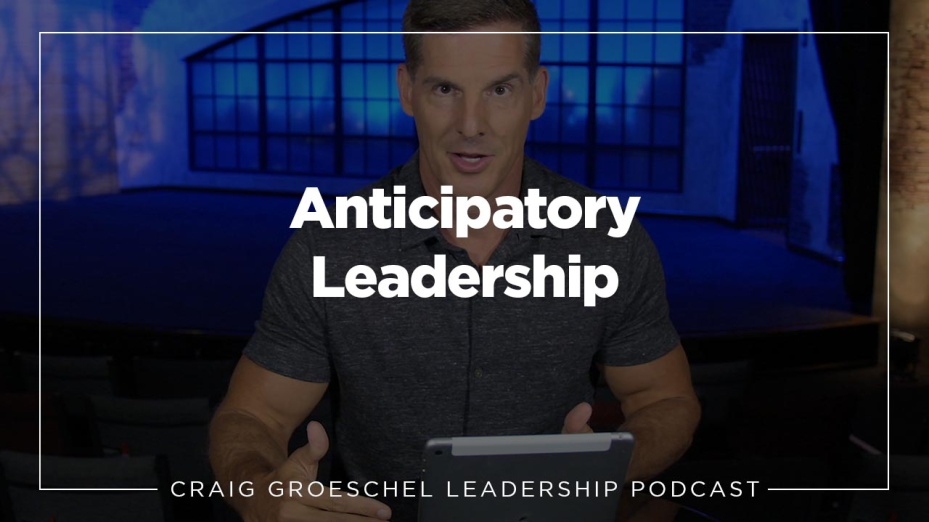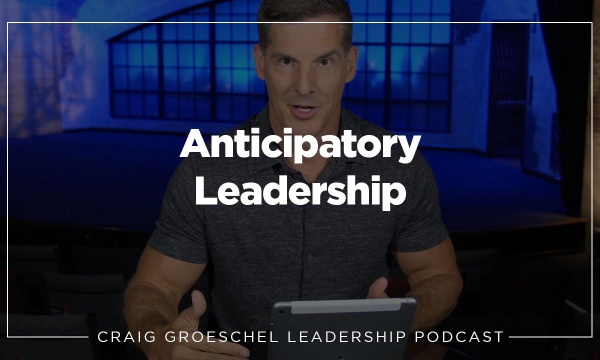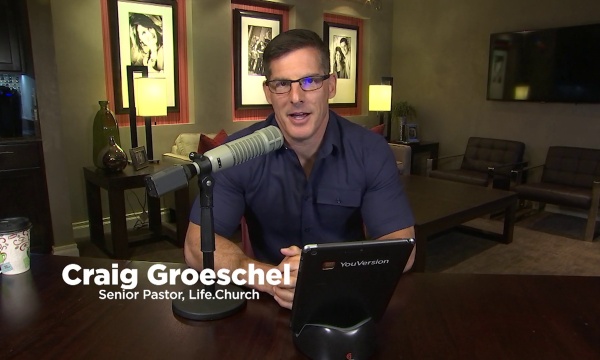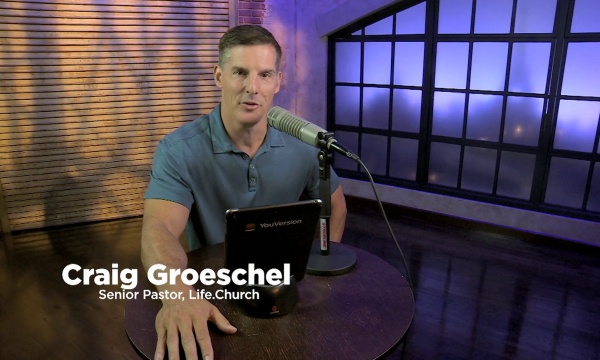Thank you for joining the Craig Groeschel Leadership Podcast! Today, we’re going to talk about what it means to be an anticipatory leader.
The lifespan of your current systems, structure, and strategy is diminishing. The way you are doing what you are doing won’t work forever—just ask Kodak, Polaroid, Blockbuster, or tons of other companies that were incredibly successful at one point or another. If you're not changing, you're falling behind. If you continue with your current systems, structures, and strategy, one of these things will happen:
- You will outgrow your systems, structure, and strategy.
- You will stall out and eventually lose ground to your competition.
- The market will change and leave you in the dust, wondering what happened.
When it comes to growing into the future, here are two things to continuously work on:
1. Solve problems before they are big problems.
Most big problems were small problems that a leader didn’t address. See problems early and solve them quickly. Now, obviously you can’t address all of them, but you should be able to focus on something you will battle if your organization is growing. Look for predictable problems and potential roadblocks. A reactionary leader says, “I’ll solve the next problem when I see it.” An anticipatory leader says, “I’ll solve the problem before it’s a bigger problem.”
2. See potential others overlook.
As you anticipate, remember: What you know today may not be true tomorrow. Great leaders see possibilities before others see them. The organization I lead was on the forefront of changing the landscape of what was possible in a church setting. Because of that, we formed strong opinions on what worked and what didn't. We were considered "experts." Any time you're considered an expert, you’re incredibly vulnerable to the curse of confidence. It becomes difficult to listen to feedback, you answer more questions than you ask, and you stop innovating.
Some people talk about a concept called the Prediction Paradox: If we think we are good at predicting the future, we aren’t likely to be. Instead of confidence about the future, we should seek humility. The more humility we have about our ability make predictions, the more successful we will be in anticipating the future. Pride blinds.
Remember, you don’t have to know it all to be a great leader! Be yourself. People would rather follow a leader who is always real than one who is always right.
DISCUSSION QUESTIONS
Here's an exercise you can do to grow as a leader—ask yourself and your team these questions:
- Looking ahead, what future problems can you solve early?
- What theories do you have about the future? What are you going to do about them?
EPISODE RESOURCES
Leave a review: www.go2.lc/leadershippodcastitunes
Catalyst One Day: www.catalystconference.com/oneday
Watch Life.Church messages: www.life.church/watch
More from Craig: www.craiggroeschelbooks.com
Craig Groeschel, Divine Direction: 7 Decisions That Will Change Your Life
Free church resources & tools: www.life.church/churches
CONNECT WITH CRAIG
Ask questions: leadership@life.church
Facebook: www.facebook.com/craiggroeschel
Twitter: @craiggroeschel
Instagram: @craiggroeschel
Snapchat: @craiggroeschel
Periscope: @craiggroeschel



